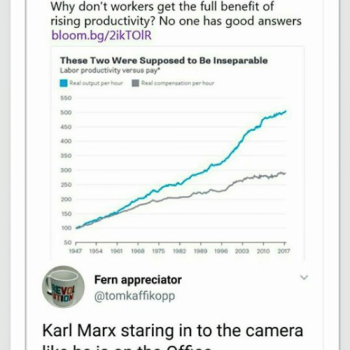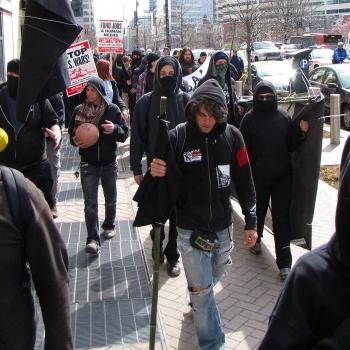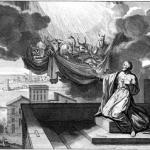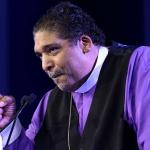This Kingdom was more than just a dream of a future reality; it was an active and physical program of passive resistance to the worldly powers that controlled the lives of the peasants who partook in it (Rome, Herod, the Temple priesthood).
- The Kingdom was directed to peasants, especially the landless (which is what tekton, carpenter, actually meant) and destitute
- Free healing subverted the Temple cult’s monopoly on access to God’s redemptive cleansing; free eating subverted Mediterranean patriarchy
- The interplay between itinerants/householders ensured that anyone could participate in the Kingdom
- Jesus, like his mentor John, criticized Herod Antipas and refused to go to the great cities Herod had built (Tiberias, Sepphoris, et al)
- The Kingdom of God was a direct counterpoint to the Kingdom of Rome
And yet we are still a long way’s off from any type of recognizable government or political society. A few details from Acts may help to shed some light on how this Kingdom was to operate in the long run.
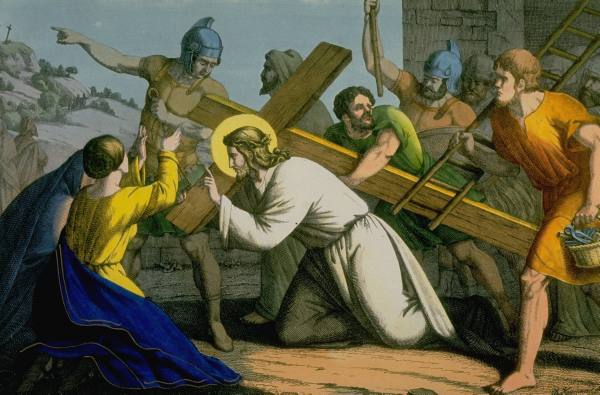
Some time after the crucifixion, Jesus’s followers (led by his brother James and Peter) came to Jerusalem,
“and they devoted themselves to the apostles’ teaching and fellowship, to the breaking of bread and the prayers…And all who believed were together and held all things in common; and they sold their possessions and goods and distributed them to all, as any had need…the company of those who believed were of one heart and soul, and no one said that any of the things which he possessed was his own, but they had everything in common…There was not a needy person among them, for as many as were possessors of lands or houses sold them, and brought the proceeds of what was sold and laid it at the apostles’ feet; and distribution was made to each as any had need. (Acts 2:42-45, 4:32-35).
Since these are the very earliest Christians, led by Jesus’s own brother (as well as many of those who had actually known him) I take this mode of community as either suggested by or instituted by Jesus himself. Householders initiated themselves into the Kingdom by sharing freely of food and shelter with the itinerants who came to them, and itinerants provided free access to God’s healing. The Kingdom of God was possibly the world’s first commune, and while entrance into the commune was of course not mandatory (Christianity was still a tiny sect at this point), participation in the Kingdom of God mandated communalism even if not communism.
This tendency towards what would eventually become known as communism is corroborated by Jesus’s numerous statements condemning wealth and the anti-capitalist readings of many of his parables (the Talents, the Workers in the Vineyard, the Eye of the Needle, etc).
If you take all this and add to it the hierarchy-negating aspects of the Kingdom (women could participate, there is neither Jew nor Gentile, etc.) what you are left with is a classless, Stateless (in a sense of the word) society where goods are held in common and to each is given according to his or her need. Whether or not this eschatological vision of a changed world was to come about through divine intervention or human activism (or some combination of the two), its identity as a proto-communist state is impossible to deny.
Given all that, it’s hard to believe that had the term been explained to him, Jesus would have been eager to call himself a “liberal.” Despite being possibly the greatest teacher of wisdom and ethics the world will ever know, Jesus was not an educated philosopher and none of these questions would have interested him much. He had an idea of what God was and what God wanted, and his almost single-minded devotion to that ideal got him killed.
When thinking about Jesus and liberalism, you must consider not only what Jesus would think about shaming or stoning women for their sexual choices, but also what he would make of the concept of a corporation, a faceless, arbitrary entity designed to extract profits from the working class for the benefit of a wealthy minority. You must ask not only if Jesus would welcome strangers into his land, but also whether a fully realized Kingdom of God even allows for the existence of refugees fleeing violence from halfway across the world.
So while of course Jesus was no conservative, it is dishonest to blindly claim that he was “liberal.” Not because it’s wrong on its face, but because it does not go nearly far enough.
Increasingly “liberals” are becoming the mainstream in 21st century America. Most Americans support liberal social issues such as LGBT marriage and marijuana legalization, and the Democratic Party’s base is expanding while the GOP’s is declining. Hillary Clinton won the popular vote in a presidential election by appealing to the broad center of the country, presenting herself as the moderate alternative to far-right Trump. And, as stated earlier, when you precisely define “liberal,” you realize that most American politicians are liberals and that it is, in fact, the moderate position.
But moderates don’t get crucified.







